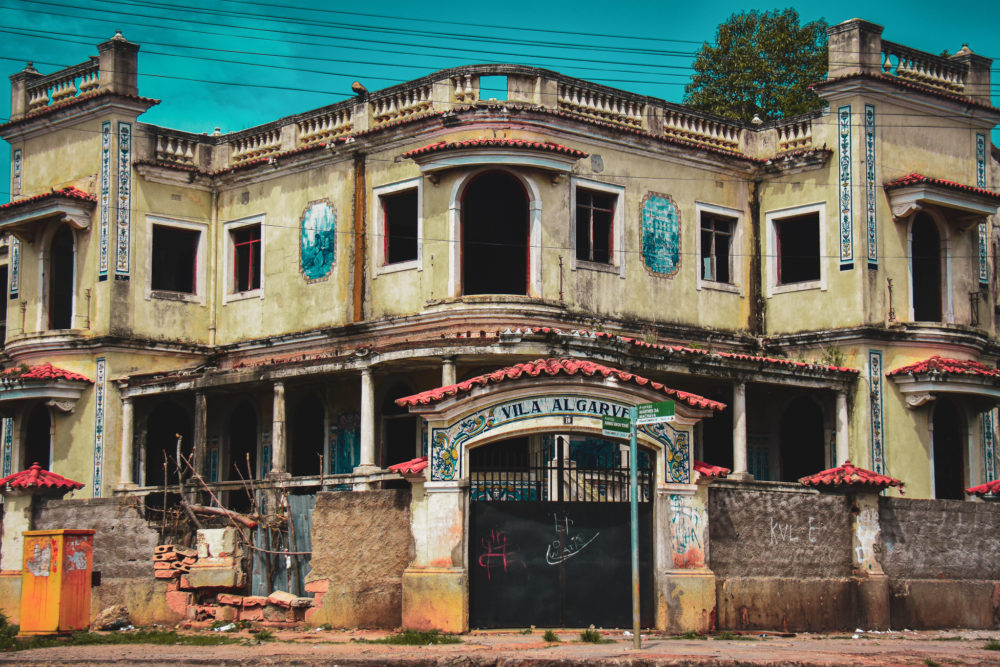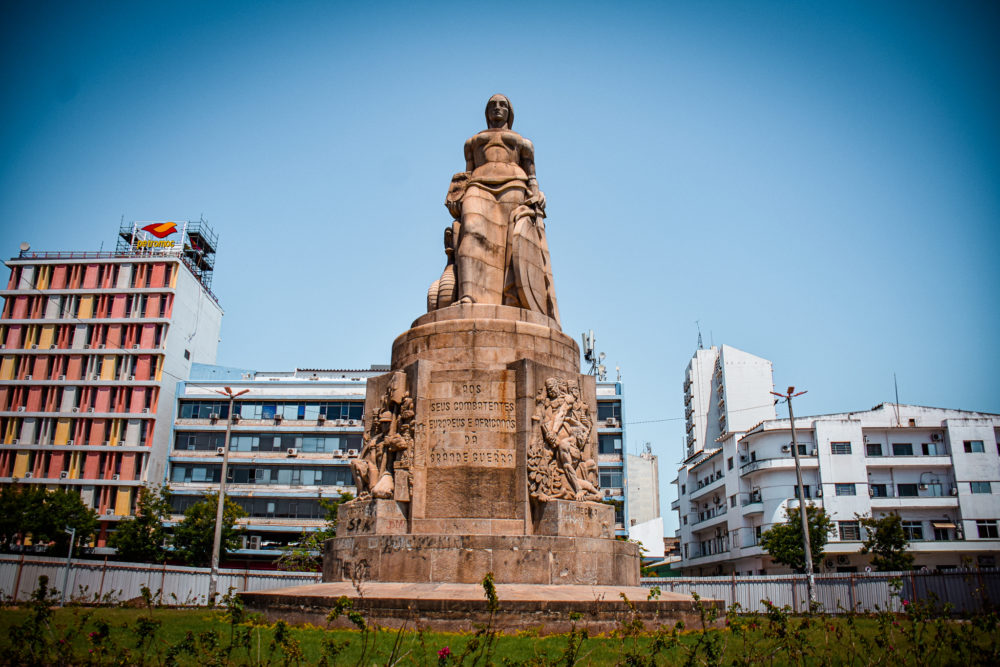November 2021: My original plan was to have just a one-night layover in Maputo on my way to Angola from South Africa. However, the Covid variant Omicron had other plans for me.
I landed in the small airport of Maputo, picked up my visa on arrival after much deliberation by immigration staff. A process that was once automatic but like all things during times of Covid can no longer be taken for granted. I was given the visa eventually. By the time I exited the airport, I was the last passenger in the airport. Only two taxis remained, leaving me in a poor position to negotiate a reasonable price for my hotel.
With what I thought was only one night in Maputo, I wanted to make the best of my night, and so I booked a room at one of the city’s most historical and nicest hotels, the Polana Serena Hotel. The hotel was built in 1922 during the Portuguese colonial era. Its architecture, gardens, pool, and views overlooking the Indian ocean make it one of the most luxurious hotels in Mozambique. The price I paid was 1/3 of the usual price.
I had a grand idea of hitting the old bar and having a nice dinner with some drinks, but instead, I received an email that my flight to Angola for the following day was canceled due to Covid regulations from Omicron. As a result, I stayed up most of the night trying to reconfigure my plans. Angola was no longer a possibility, so I needed a backup plan to exit the currently taboo region of southern Africa, which was quickly being red listed by many of the world’s countries, including my own. I wanted to visit more of Mozambique and venture to the north of the country. Still, with the uncertainty of the times, I knew I needed to leave Mozambique and the countries of Southern Africa before any more flights or borders were canceled or closed. I needed to travel to an alternative destination, and I chose the Comoros islands because it is a country that I have wanted to visit for a long time and a country I haven’t been to yet. To get there, I would take Ethiopia Airlines, one of the last reliable airlines during the Covid era. The problem was I wasn’t the only one who realized Ethiopian Airlines as an escape plan. Judging by the price of the flights for the next few days, many others were fleeing to get back home on Ethiopian, which they could use as a launching pad to get back to Europe or the USA. I would need to wait in Mozambique for at least three days before finding a cheap enough flight to leave Mozambique.
Background of Maputo and Mozambique

Map of Mozambique
Mozambique has been under the influence of the Portuguese since the 1500s. It was a colony until a war of independence with the Portuguese in the 1970s. Mozambique won its independence, but the victory was short-lived as the country descended into a civil war that threatened to turn the country towards communism shortly afterward. When the civil war finally ended in the early 90s, thousands were dead, millions of landmines were left to wreak havoc, and the country was in shambles. More recently, fighting in the country has resumed in the north against Islamic rebels.
The country is vast and blessed with about a thousand miles of idyllic beaches and countless national parks and reserves that are starting to recover from previous wars.
The Polana Serena Hotel

The lobby
I enjoyed the hotel’s ambiance, but unfortunately, I spent so much of my time trying to stay ahead of impending Covid regulations that I wasn’t able to truly relax and enjoy the hotel or Mozambique.

The Bar

Grand Pool
Exploring Maputo
I went to Maputo thinking it would be a large dirty, and dangerous city that I wouldn’t enjoy. Instead, I found myself pleasantly surprised by how much I liked it. The town on the coast has a relaxed vibe with its beautiful beaches, and it reminds me of some of the coastal Brazilian cities like Maceio or Fortaleza. I enjoyed the mix of architecture-colonial Portuguese, Art Deco, Communist Brutalist, the history, revolutionary murals, graffiti, and countless monuments. Some bronze statues of past leaders were bizarrely made in North Korea, a country specializing in building giant grandiose statues of its leaders.
There is however a dark side to Maputo. other travelers briefed me about the city’s rampant police corruption, shakedowns and even police kidnappings. I was extremely vigilant of police during my exploration of Maputo. It likely helped me to have a safer experience in Maputo when I met a hotel taxi driver, Alfonzo, who not only became my friend, but he also became an un-official guide showing me Maputo and Macaneta Beach, an endlessly long beach an hour north from Maputo.

Old Portuguese red Light District
Alfonzo and I explored Maputo. We had beers at some bars in the old Portuguese colonial red-light district, which was very interesting. We chatted with some working girls and learned about their lives while listening to obscure 80s music blasted from raspy speakers in the bar. At 7 pm, the Covid curfew kicked in, and the streets emptied, so I returned to my hotel and bid goodbye to my friend.

Old Portuguese red Light District

The old Market place

Maputo Statue of Mozambiquan General who Fought for Independence Against Portuguese. The statue was constructed in North Korea.

Revolutionary Murals in Maputo
Maputo is full of history; much of it is dark but fascinating. As with so much of Africa, there is a history of colonial exploitation and oppression. One beautiful Portuguese colonial-era mansion from a hundred years ago stands derelict in Maputo. The mansion appears to have so much renovation potential, yet it stands empty and abandoned. This is because it has a dark history, so dark that no one wants anything to do with it. It was used by the Portuguese secret police to torture and execute political prisoners, and the mansion is widely believed to be haunted.

Old Portuguese Mansion Concerted to Secret Police HQ During War

Old Portuguese Mansion Concerted to Secret Police HQ During War
Then there is the Portuguese castle located downtown initially built in the 1700s, but it was razed many times over in the various battles fought with other foreign enemies. Today the castle stands as a symbol to remind future generations of the horrors of the colonial past. The remains of the last dynast king of Mozambique, who the Portuguese kidnaped in the 1800s, are buried inside an elaborately carved coffin located in the castle. Right outside the casket is a statue of the Portuguese general who captured him. The figure once stood outside the court in a square, but it was relocated into the castle. I asked my friend why the people haven’t destroyed the statue, and he said it is kept here as a reminder to kids of what their elders had to endure so that it will not be forgotten. A few hundred feet away from the castle is the most beautiful statue in the city. It is the statue in my feature photo on the top of this post. A queen with a snake wrapped around her was built 100 years ago after World War I, to memorialize the people in Mozambique who died in WWI. The war did not stay within the boundaries of Europe. Instead, its battlefields stretched to Africa and Mozambique, and the people of Mozambique found themselves caught up in the middle of power struggles between colonial powers.

Old Portuguese Fort in the middle of downtown Maputo

King Gungunhana Tomb- last King of Mozambique was captured by the Portuese in the 1800s and taken to Lisbon before finally returning his remains after death to his homeland. He is now buried in a coffin in an old Portuguese fort in Maputo.

Statue of a Portuguese general who fought for Portugal during the revolution.

70s era church

Revolutionary Murals in Maputo
Traveling Outside of Maputo
On my last full day in Mozambique, Alfonzo took me to Macaneta Beach, where I relaxed for the day and lingered around the beach, something I never do.

Macaneta Beach

Fishing Boats

Fishing Boats
I sat on the beach, being the only one on the beach for as far as I could see. Since there was no one around, I decided to relax and take a quick nap. After one minute of letting my guard down, something started to lick my head. When I shockingly looked up, I saw two little wiener dogs. The two little dogs adopted me as their pack leader for the rest of the day and kept catching crabs and presenting them to me on my beach towel.

Me relaxing on beach

One of my little canine friends
Macaneta Beach is a natural beach with little development. Sand dunes and scrub jungle with wild monkeys line the shore. There are laid-back beach hotels, but all of this is slated to change. The 4wd track to get to the beach is being paved, and new developments, hotels, and golf courses are in the works. The sleepy little beach town will be transformed into something I don’t care to see in the future.

My canine friends leading me through the monkey forest

